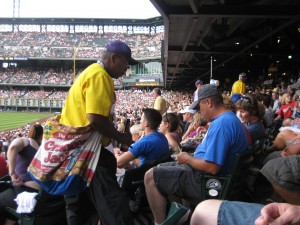 At one point in his career, my husband had three bosses in one year.
At one point in his career, my husband had three bosses in one year.
The first boss was his favorite, because she always acknowledged him and made a point to say how much she appreciated his extra efforts.
The second boss wasn’t very popular from the beginning, because that guy always (thought he) was right. When Boss #2 started, my husband offered some suggestions about how to improve a procedure with which store employees were having challenges. My husband didn’t work the same shift as the new boss and rarely saw him, so he offered his suggestions through a handwritten note, which he placed in a sealed envelope on his desk. No response from Boss #2. My husband is rather persistent so he left the boss a voice-mail message, offering to discuss potential solutions with him. The boss never even acknowledged my husband’s efforts or expressed any interest in talking over his ideas.
By the time Boss #3 was hired, staff morale was at an all-time low — even though the employees were glad to see Boss #2 move on. The new boss came in and met individually with all employees and got to know them. My husband shared one of his ideas, and Boss #3 responded with a thank you. When you think about it, that is a crucial yet unconventional form of customer service!
Build the Proper Culture
To be a positive role model for your staff, you must do the following:
• If an employee asks a question, provide an answer — or at least acknowledge that you will respond.
• If someone offers a suggestion, acknowledge it and thank that person for the contribution.
• Ask for input from customers and staff. You might be surprised at what suggestions they offer when they know you’re listening.
Remember, the culture you build affects how engaged your employees are, how well they serve your customers and, consequently, how engaged and loyal your customers will be. All of this relates to one critical factor of engagement: feeling valued.
In Praise of Esteem
Esteem — that is, respect — is one of the basic human needs identified by Abraham Maslow’s hierarchy of needs more than 70 years ago. Researchers have continued to refine that model ever since, but most agree that respect or feeling valued is critical to feeling good about any relationship or interaction (personal or professional).
Too many leadership teams I work with are laser-focused on the bottom line, and they don’t realize the path to increasing that bottom line is growing the engagement and loyalty of both employees and fans. Sure, lots of companies have customer loyalty programs, but as Rajat Paharia points out in Loyalty 3.0, the traditional way of thinking about loyalty programs doesn’t work in a world where a better deal is just a few keystrokes away. Traditional loyalty programs also overlook the best way to improve loyalty: Make sure every fan experience is a good experience. That can only happen when you have engaged and loyal employees.
How do you know if you’re losing the game in this area? Maybe your turnover rate is higher than the industry average. Maybe managers struggle to achieve a consistent level of performance. Or maybe your season ticket sales or renewals are dropping off, or your long-term or repeat customers are abandoning you in favor of the competition.
But the number one sign that you are not being proactive enough about building loyalty is what people — employees and customers — say about your organization online. Companies that do a respectable job of building loyalty have advocates all over the place on social media, sticking up for them. If tweets and posts and comments related to your company are becoming negative and even ugly, ask yourself whether you’re doing enough to build a strong, positive relationship with your employees and customers.
It’s Easier Than You Think
While it can seem that building loyalty is an uphill battle, the truth is that employees and fans want to give it to you. Why? Because loyalty makes their experiences better. When they have a deeper connection with the organization, each experience generates deeper emotions. It feels good to be part of a community. It’s the difference between spending time with friends and spending time with strangers. That’s why people tailgate before games! Imagine how it feels when an usher asks how your daughter is doing in college. Imagine the pride of seeing your name on a plaque honoring 10-year employees.
Your employees and fans are waiting for you to take the relationship to the next level, to nurture it and tell them what you need.
So what are you waiting for?






Leave a Reply